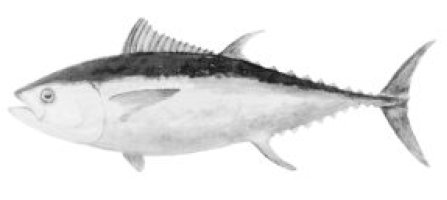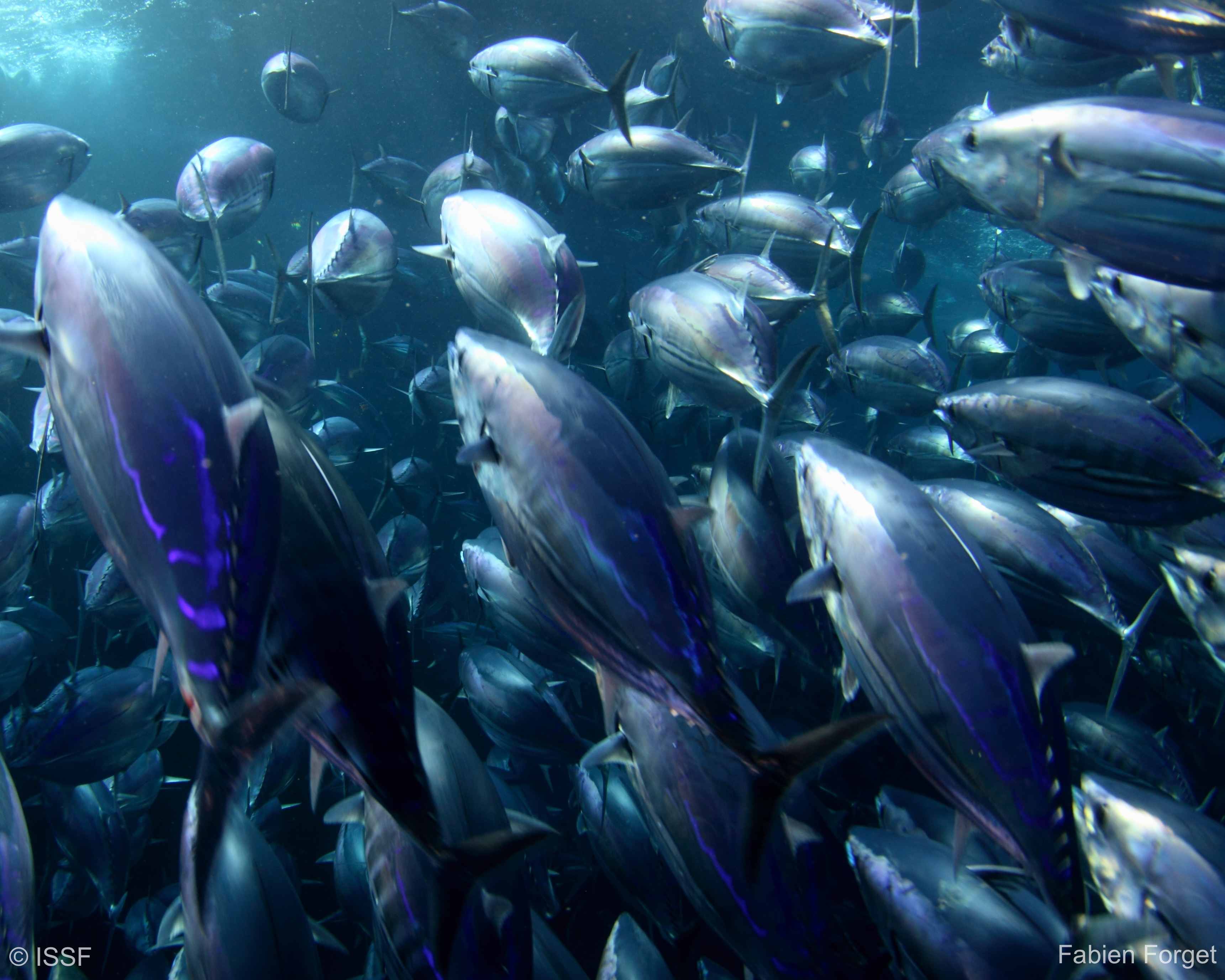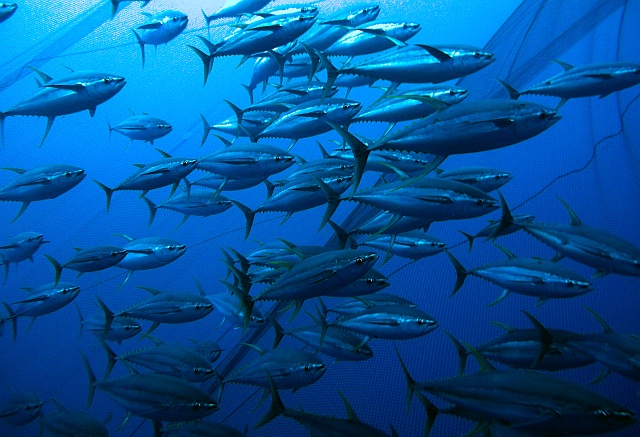Pacific Bluefin
Pacific bluefin (Thunnus orientalis) is one of three bluefin species, together with Atlantic bluefin and Southern bluefin.

Photo credit: George Mattson. In: Tuna and Billfish. Fish without a Country (1988). Courtesy of Inter-American Tropical Tuna Commission (IATTC).
Atlantic bluefin and Pacific bluefin only recently came to be viewed by marine scientists as separate species.
Although it is generally smaller than Atlantic bluefin, Pacific bluefin is also one of the largest of the tuna species, ranging between 80–200 cm in length. It has the largest geographic range of all tunas, widely distributed throughout the North Pacific Ocean — from East Asia to the North American West Coast — and with a more limited presence in the Southern Hemisphere.
Thunnus orientalis is a temperate tuna species that can also range into tropical waters. It is considered to consist of only one stock and it forms schools by size, sometimes with other tuna and mackerel species.
Species Characteristics
| Size (cm) | Weight (kg) | Age (yrs) | |
|---|---|---|---|
| Common | 120–210 | 100–260 | 15+ |
| Maximum | 300 | 540 | 20 |
| Maturity | 100–150 | 50–60 | 3–5 |
| Generation Length |
9 |
Geographic Limits
- Pacific bluefin distribution is from the Gulf of Alaska to Baja California in the east (between 60°N and 20°N) and from Sakhalin Island to New Zealand in the west (between 50°N and 50°S).
- There are also records of this species around the islands of French Polynesia.
- 60°N to 50°S, 140°E to 90°W
Species Management
Given Pacific bluefin’s wide geographic range, the species is managed by two different Regional Fisheries Management Organizations:
Bluefin Tuna Stock Status
Our Status of the Stocks report summarizes the status of bluefin tuna worldwide according to the most recent scientific assessments.
It also reviews the management measures for bluefin that Regional Fisheries Management Organizations (RFMOs) have adopted.
RELATED RESOURCES

Interactive Stock Status and Catch Tool
Use our interactive data-visualization tool to create and then download or share graphics on tuna stock status.
You can visualize data on 23 commercial tuna stocks (by species and ocean area) share of total catch, stock health trends, and catch trends over time.

ISSF 2025-08: An Evaluation of the Sustainability of Global Tuna Stocks Relative to Marine Stewardship Council Criteria
The Marine Stewardship Council scoring system was used to evaluate 23 stocks of tropical and temperate tunas, including the bluefin tuna stocks (added in 2021), throughout the world.
Bluefin Stock Health & Catch Trends
Use our “Interactive Stock Status and Catch Tool” to visualize, download, and share data about bluefin tuna:
- Stock health since 2011
- Current catch by fishing method
- Catch trends by fishing method since 1950
Tuna Conservation
Our research and advocacy work aims to ensure, on a global level, that tuna resources are well managed and protected from overfishing.
Tuna Stock Evaluations
An ISSF report uses the Marine Stewardship Council (MSC) scoring system to evaluate both the health and RFMO management of 23 tuna stocks worldwide, including bluefin.


